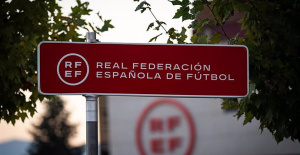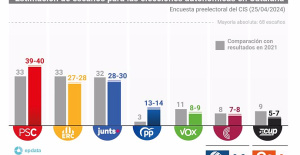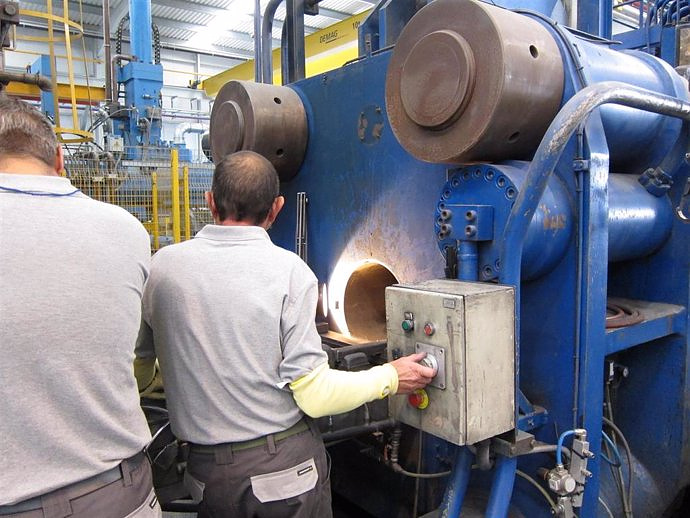car At 16. March 2019BTC$3.995,91 1.79%Facebook Twitter LinkedIn xing mail
BTC-ECHO: a Lot of players in the crypto-scene, and in particular the crypto Start-ups, the financial want to offer services that are not on good terms with the BaFin. Do you share the view that the BaFin in relation to restrictive?
Eric Romba: Linden partners has made two very good experiences with the BaFin [Bundesanstalt für Finanzdienstleistungsaufsicht] points. On the one hand, in terms of their openness, on the other hand, in terms of their knowledge of the market. The BaFin has always tried to applicable law to new technology.
BaFin is not, per se, more strict than the German law, but they must at the same time ensure that the law is complied with. You can of course complain of it elsewhere is supposedly easier for [a license for crypto-projects such as STOs]. But a secure legal framework, has many advantages. We note, for example, in conversations with investors. Because projects in Malta or Gibraltar will be perceived very differently, as the German projects. It should have the latter brought to a permit [in Germany], it is safe to assume that the quality is right.
by the Way: Many of the regulations have been taken at the European level. This means that each country must apply these rules uniformly.
BTC-ECHO: In this context you often hear from the ESMA [European securities and markets authority], on a European level for financial oversight. How strong do you see the European authority in the duty to take Action and how strongly they can take any influence at all on the EU-wide crypto-regulation?
Eric Romba: The ESMA, the European supervisors have an important role because they are the member countries and collects the different attitudes of the EU and co-ordinated. In the ESMA's Report on the subject of crypto and the different experiences were collected. In addition, the ESMA has an Advisory role for the EU Commission. So, ESMA may, for example, impetus for legislation.
At the end of the idea of a unified Europe is always – also in this sense, ESMA has a Hub function, in order to bring the different views of the national supervisors for the compensation. In this respect, the role of ESMA is not to be underestimated, however, is in contrast to the national supervisors, also is not an Executive Board. The management decisions remain with the national supervisors.
BTC-ECHO: How do you assess the chances that Bitbond remains the only German and of the BaFin licensed STO in 2019?
Eric Romba: 100 percent. Alone in front of the Background that we are already working on other projects, and good things are, that we will lead together with the BaFin, in a securities prospectus.
BTC-ECHO: And your assessment over ten or under ten in 2019 [by the BaFin approved the STOs]?
Eric Romba: this year, over ten. Currently, there are two more [STO-applications] are still in the case of the BaFin. We still have five more projects in the Pipeline which are in different degrees of Maturity. Of course, the first approved project is also always a kind of imitation effect. There are now some other law firms, which devote themselves to the topic of STO.
BTC-ECHO: Bitbond over a BaFin-license already had before the STO request. How much this has helped in the approval process?
Eric Romba: Basically, the administration is independent. It certainly is played a role, that Bitbond, BaFin was known before the Background that there are so-called Supervisory dialogue – control so constantly. In addition, you knew the company and the business model. At the same time you have to see that for the supervision of a different Department is responsible for the approval of securities. You will have exchanged internally, sure information; but in the end, of the is enough to approve the prospectus.
BTC-ECHO: we Will see in the next one to three years, many traditional SMEs, which have nothing to do with the Blockchain, the STOs are to use as a form of financing?
Eric Romba: here again, 100 per cent. We build prototypes that make the principle of Tokenization of values on the Blockchain, and then digitally distribute. This happens, for example, in the area of property or alternative energy sources. We will see this year, even for medium-sized companies.
Because such companies are already regulated and have a working business model. The new technical possibilities, you see, of course. You will ask yourself how you can make use of. An example of why it's for medium-sized businesses makes sense, the Blockchain technology is, among other things, the opening up of a new crypto-savvy investors.
BTC-ECHO: Well, there are no state-regulated Security Token Exchanges. How long will it take to, for example, a Stuttgart stock exchange offers the Security Token for trade?
Eric Romba: We perceive that a variety of market actors devoted to this topic. For a classic MTF [Multilateral Trading Facility, to English: the multilateral trading venue, i.e. a stock exchange in the classical sense] is certainly the Stuttgart stock exchange, the bearer of hope. The are gone very early on with such projects to the Public. Since the Stuttgart stock exchange is driven, as the very technology that would fit a MTF for crypto-Assets from our perception very well in your profile.
As seen, there is already an expectation that we will see this year, a trading venue that allows you to trade with STOs. At the same time it must be said that certain problems, such as the Reporting are not yet solved. The classic Reporting, that is currently the law is not made for tokens. It is necessary to define, in principle, that for Token, the same rules as for securities apply. But the will to succeed.
BTC-ECHO: in Respect of KYC [Know Your Customer]: If I understand correctly, anyone who performs a STO due to required KYC. Since tokens but can be easily replaced, and is ultimately given, but no control, who is the owner of the Security Token?
Eric Romba: Nowadays, everyone is using the ticket companies can buy shares on the regulated markets. So this is not a phenomenon that only exists in the Token-Economy. Furthermore, the privilege of self-Immission reaches in principle, still. In accordance with the prevailing law on money laundering, I am not required to do KYC.
However, there is still the criminal component. According to § 261 of the criminal code [money laundering; concealment of unlawfully obtained assets] there is a potential risk that you [as a STO-Issuer] lightly of money laundering and therefore liable to prosecution. Therefore, it is recommended that KYC and AML [Anti Money Laundering].
From 2020 onwards, are also obliged to Wallet providers and Exchanges, AML guidelines.
BTC-ECHO: a slightly different question. You are a passionate art collector and do some work in the public. Is mapped to the art trade in the future also via Token or the transfer of ownership?
Eric Romba: You can look at the issue of tokenization of tangible assets such as art objects from two perspectives: firstly, there is the physical art, so the "tangible object". I can imagine use cases for the Blockchain technology. For example, you can verify by using the Blockchain, whether it is an original item or not.
The other use case is the so-called fractional ownership. That is, one acquires a share of a physical object by using a token. In the case of the liquidation of the Token Holder will receive a Pro-rata profit.
Then there's still use cases for digital art such as video work. Replicable, you could make Work also with tokens to equip, and thus transferable. For the duration of the exhibition, it can be deposited, for example, Token and acquires thereby the right to do the work over a period of time. You could also make art on remote storage media available.
Blockchain and Fintech Jobs : looking for a new challenge? In our job Board your current job ads from the Blockchain and Fintech companies.

 Exploring Cardano: Inner Workings and Advantages of this Cryptocurrency
Exploring Cardano: Inner Workings and Advantages of this Cryptocurrency Seville.- Economy.- Innova.- STSA inaugurates its new painting and sealing hangar in San Pablo, for 18 million
Seville.- Economy.- Innova.- STSA inaugurates its new painting and sealing hangar in San Pablo, for 18 million Innova.- More than 300 volunteers join the Andalucía Compromiso Digital network in one month to facilitate access to ICT
Innova.- More than 300 volunteers join the Andalucía Compromiso Digital network in one month to facilitate access to ICT Innova.-AMP.- Ayesa acquires 51% of Sadiel, which will create new technological engineering products and expand markets
Innova.-AMP.- Ayesa acquires 51% of Sadiel, which will create new technological engineering products and expand markets A Commission created by the CSD will supervise the RFEF
A Commission created by the CSD will supervise the RFEF The AN judge prosecutes the former ETA leader for her responsibility in the kidnapping and murder of Miguel Ángel Blanco
The AN judge prosecutes the former ETA leader for her responsibility in the kidnapping and murder of Miguel Ángel Blanco The European Parliament condemns the contacts of the Catalan independence movement with Russia and demands an investigation
The European Parliament condemns the contacts of the Catalan independence movement with Russia and demands an investigation The PSC would win the Catalan elections with 39-40 seats, Junts would obtain 28-30 and ERC 27-28, according to the CIS
The PSC would win the Catalan elections with 39-40 seats, Junts would obtain 28-30 and ERC 27-28, according to the CIS How Blockchain in being used to shape the future
How Blockchain in being used to shape the future Not just BTC and ETH: Here Are Some More Interesting Coins Worth Focusing on
Not just BTC and ETH: Here Are Some More Interesting Coins Worth Focusing on Retrópolis brings the golden age of video games and computing to the UPV
Retrópolis brings the golden age of video games and computing to the UPV Looking for video games that value the neighborhoods of Valencia
Looking for video games that value the neighborhoods of Valencia UPV researchers improve the efficiency of air conditioning systems using a geothermal heat pump
UPV researchers improve the efficiency of air conditioning systems using a geothermal heat pump València is committed to citiverse and smart tourism to be "the reference technological hub of the Mediterranean"
València is committed to citiverse and smart tourism to be "the reference technological hub of the Mediterranean" A million people demonstrate in France against Macron's pension reform
A million people demonstrate in France against Macron's pension reform Russia launches several missiles against "critical infrastructure" in the city of Zaporizhia
Russia launches several missiles against "critical infrastructure" in the city of Zaporizhia A "procession" remembers the dead of the Calabria shipwreck as bodies continue to wash up on the shore
A "procession" remembers the dead of the Calabria shipwreck as bodies continue to wash up on the shore Prison sentences handed down for three prominent Hong Kong pro-democracy activists
Prison sentences handed down for three prominent Hong Kong pro-democracy activists ETH continues to leave trading platforms, Ethereum balance on exchanges lowest in 3 years
ETH continues to leave trading platforms, Ethereum balance on exchanges lowest in 3 years Investors invest $450 million in Consensys, Ethereum incubator now valued at $7 billion
Investors invest $450 million in Consensys, Ethereum incubator now valued at $7 billion Alchemy Integrates Ethereum L2 Product Starknet to Enhance Web3 Scalability at a Price 100x Lower Than L1 Fees
Alchemy Integrates Ethereum L2 Product Starknet to Enhance Web3 Scalability at a Price 100x Lower Than L1 Fees Mining Report: Bitcoin's Electricity Consumption Declines by 25% in Q1 2022
Mining Report: Bitcoin's Electricity Consumption Declines by 25% in Q1 2022 Oil-to-Bitcoin Mining Firm Crusoe Energy Systems Raised $505 Million
Oil-to-Bitcoin Mining Firm Crusoe Energy Systems Raised $505 Million Microbt reveals the latest Bitcoin mining rigs -- Machines produce up to 126 TH/s with custom 5nm chip design
Microbt reveals the latest Bitcoin mining rigs -- Machines produce up to 126 TH/s with custom 5nm chip design Bitcoin's Mining Difficulty Hits a Lifetime High, With More Than 90% of BTC Supply Issued
Bitcoin's Mining Difficulty Hits a Lifetime High, With More Than 90% of BTC Supply Issued The Biggest Movers are Near, EOS, and RUNE during Friday's Selloff
The Biggest Movers are Near, EOS, and RUNE during Friday's Selloff Global Markets Spooked by a Hawkish Fed and Covid, Stocks and Crypto Gain After Musk Buys Twitter
Global Markets Spooked by a Hawkish Fed and Covid, Stocks and Crypto Gain After Musk Buys Twitter Bitso to offset carbon emissions from the Trading Platform's ERC20, ETH, and BTC Transactions
Bitso to offset carbon emissions from the Trading Platform's ERC20, ETH, and BTC Transactions Draftkings Announces 2022 College Hoops NFT Selection for March Madness
Draftkings Announces 2022 College Hoops NFT Selection for March Madness























